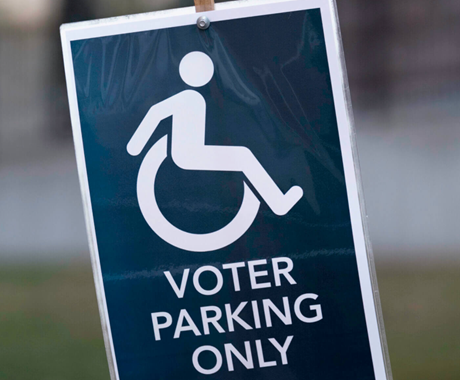
Summer and fall elections are just around the corner. Partisan primaries in Wisconsin are set for Tuesday, August 9, and the general election is Tuesday, November 8.
It’s easy to fall into the trap of believing that voting doesn’t make much of a difference. But that kind of thinking is dead wrong! Elected officials at every level of government make decisions every day that affect our lives profoundly. Some of those decisions are very local, such as approving an automated pedestrian crossing signal at a dangerous intersection. Others are statewide, such as prioritizing key programs in the biennial state budget. And some are federal, such as determining what services can be covered by Medicare
As a nonprofit organization, it’s not the Council’s role to suggest particular candidates to you. But what we can do is help you understand the issues we think are important and how to find information about where the candidates stand on those issues. They include:
- Transportation, including specialized and mass transit, grants for pedestrian signals, and funding for Division of Motor Vehicles (DMV) customer service centers.
- Accessible absentee voting. Wisconsin absentee ballots don’t currently comply with Americans with Disabilities Act standards.
- Accessibility and civil rights, including broadband access and accessible government websites.
- Education, including adequate funds for special education, the Wisconsin Office for the Blind and Visually Impaired (OBVI), and loan forgiveness programs.
- Employment, including support for the Division of Vocational Rehabilitation.
- Health & Long Term Care, including assessing the services provided by OBVI and developing a strategic plan for future needs.
You can learn more about the Council’s legislative priorities on our website at WCBlind.org/advocacy.
What’s on My Ballot?
The State Elections Commission provides a comprehensive list of candidates running in the upcoming elections. In some places, there may be other things on the ballot, such as referenda on local issues. Keep in mind that the August 9 election is a partisan primary, meaning that voters can choose candidates from only one party. You can find what will be on your ballot at MyVote.wi.gov/en-us/My-Ballot.
Who Should I Vote For?
The Council is a core member of the Disability Vote Coalition, a project of Disability Rights Wisconsin and the Wisconsin Board for People with Developmental Disabilities. The Coalition has created two new comprehensive factsheets containing questions you can ask candidates to learn their positions on issues that matter to you, along with background information about those questions. We invite you to ask these questions at candidate forums, in emails to candidates, in social media posts, or in a letter to the editor of your local newspaper.
For example, the Council is working to improve transportation options for nondrivers. So you might consider asking a candidate for Governor or State Legislature how they plan to improve Wisconsin’s transportation systems to better meet the needs of the one-third of Wisconsinites who don’t drive. You can frame the question by pointing out that transportation options are a critical part of access to jobs, affordable housing and medical care, and play an important role in economic development.
You can find questions for state office seekers, including Governor, Lieutenant Governor, and State Legislator on this accessible PDF from the Disability Vote Coalition.
Questions for U.S. Congressional candidates are on this PDF from the Disability Vote Coalition.
The League of Women Voters also sends candidates questionnaires covering a range of issues and shares their answers on the Vote 411 website at vote411.org.
Preparing to Vote
Besides deciding who and what to vote for, it’s important to make a plan for how you will cast your ballot. The Disability Vote Coalition has a factsheet covering how to make sure you are registered and how to request and complete an absentee ballot. Find it on their webpage.
People with disabilities have the right to many accommodations when they vote, including accessible polling places, curbside voting, and assistance completing the ballot. A wealth of information about voting rights is available on the Disability Vote Coalition website at DisabilityVote.org/know-your-rights.
More Resources:
- Disability Vote Coalition Voter Toolkit, DisabilityVote.org/2022/voter-toolkit-2022-elections
- Vote 411, vote411.org
- My Vote Wisconsin, MyVote.wi.gov
If you encounter problems when voting, have questions or need additional help, contact the Disability Rights Wisconsin Voter Hotline at 844-DIS-VOTE/ 844-347-8683 (available 8:00 a.m. to 6:00 p.m.) or email info@disabilityvote.org.
You can also always call your local municipal clerk with your concerns or contact the Wisconsin Elections Commission at 866-Vote-Wis or elections@wi.gov.

